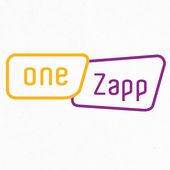Dubai December 22 2023: Bashar Al-Natoor, the Global Head of Islamic Finance – Managing Director, Fitch Ratings, has projected a sustained uptrend in global sukuk issuance, with the market soaring to US$823.4 billion at the end of Q3-23, reflecting a robust 9.8% annual growth.
Speaking to the Emirates News Agency , Al-Natoor attributed the surge to several key factors driving the adoption of sukuk: a) filling budget gaps, especially in non-oil-rich countries; b) diversifying funding options; c) establishing flexible financial tools for institutions; d) expanding liquidity sources for banks; and e) offering corporates and projects alternatives to traditional bank loans.
He also categorised nations based on their financing and refinancing needs or their aspirations to enhance and diversify their debt markets.
While higher oil prices have bolstered their finances, GCC countries are proactively issuing sukuk not just for immediate needs, but to achieve strategic goals like building robust debt market structures and diversifying their funding options, he added.
Al Natoor pointed out that the rise in interest rates has a negative impact on global issuances of sukuk, and therefore on the global sukuk market. It reduces the appetite of global investors to enter emerging markets, and increases concerns about growth rates when interest rates rise. As for the impact on issuers, some of them are often forced to adapt to the high levels of interest rates due to existing obligations they must meet.
He explained that the impact of rising interest rates on local investors is different, especially as many local investors are Islamic banks that have healthy liquidity and a desire to invest that liquidity. This category of investors is active and their desire to invest in sukuk increases.
Regarding the UAE as an important issuer and investor in the global sukuk market, Al-Natoor pointed to two dimensions at the global level. The first is compliance with the standards of the Accounting and Auditing Organisation for Islamic Financial Institutions (AAOIFI), especially Sharia Standard No. 59, which helps to avoid the possibility of loss for investors from the UAE and the loss of entry of UAE institutions in arranging deals. This is because the UAE obliges banks to comply with these standards, whether as an investor in sukuk, a lead arranger or an issuing manager. The second dimension is related to the intention of some entities to list sukuk on the Nasdaq stock exchange in the Dubai International Financial Centre, which is considered a global listing destination for sukuk.
Regarding sukuk issuances in recent times, Al-Natoor said that they reached $51.7 billion in the third quarter of this year, in the main markets that include the Gulf Cooperation Council countries, Malaysia, Indonesia, Turkey and Pakistan. This is the same level of issuances as in the previous quarter, but it represents a decrease of 12.3% on an annual basis.
He noted that sukuk issuance declined by 24.7% year-on-year to $154.6 billion in the first nine months of 2023. “The decline was less severe than the 17% drop in bond issuance, which rose by 1.2% on a quarterly basis.”
Natoor attributed the slowdown in sukuk issuance to the usual summer lull and rising oil prices, which led to reduced financing needs for some GCC countries.
At the end of the third quarter of 2023, the global sukuk market reached $823.4 billion, of which 40% were issued by Malaysia, 28% by Saudi Arabia, 13% by Indonesia, 6% by the United Arab Emirates, and 3% by Türkiye.
About 75% of these global sukuk were issued in local currencies until the end of the third quarter of 2023. Outstanding sukuk rated by Fitch exceeded $150 billion, up 12.2% year-on-year, and 79.8% of the sukuk rated by the agency are investment grade.










